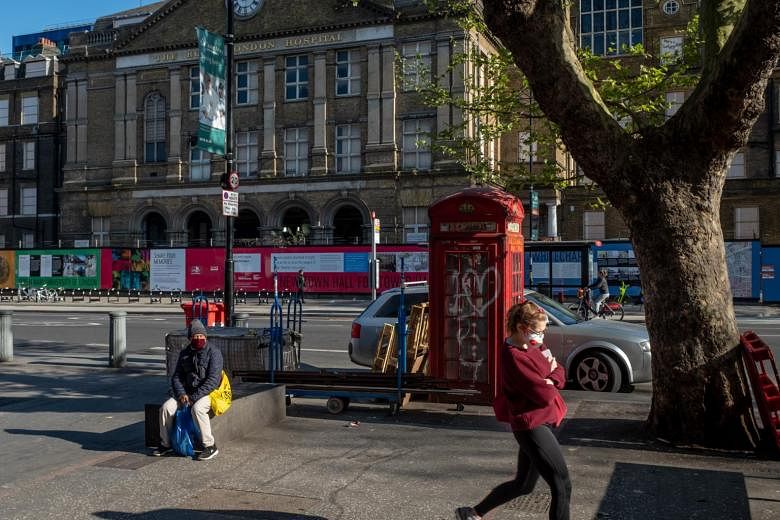LONDON (NYTIMES) - As Britain closes in on 100,000 reported cases of the coronavirus - a solemn milestone in a contagion that has ravaged its political leadership - a raft of new statistics suggests that the government is undercounting the human, and economic, cost of the epidemic.
The government's Office of National Statistics released data on Tuesday (April 14) revealing that the death toll from the virus could be at least 10 per cent higher than the official toll of 12,107 because that number does not take into account people who die in nursing homes or in their own residences.
At the same time, the Office for Budget Responsibility, a fiscal watchdog group, said the lockdown could shrink Britain's economy by 35 per cent in the second quarter and throw 2 million people out of work - a prediction even worse than the government's darkest warnings.
Taken together, these new numbers cast a grim shadow over Britain's response to the epidemic, which has already been dogged by shortfalls in testing and questions about the supply of ventilators and protective gear.
As in the United States and other countries, nursing homes in Britain have become hot zones for the virus. Two major operators have reported 521 deaths in their homes in recent weeks, many of which have not yet been reflected in the official statistics because of a lag in recording the deaths.
In data released on Tuesday, the Office of National Statistics reported that from the beginning of the year until April 3, there were 217 deaths from the coronavirus in nursing homes in England and Wales; 136 in private homes; and 33 in hospices.
It estimated that 90.2 per cent of deaths from the virus occurred in hospitals, while the rest occurred in nursing homes, hospices, or at home. The statistics do not include Scotland or Northern Ireland.
But for the week of March 28 to April 3, the office reported 16,387 deaths in England and Wales, the largest weekly total since it began compiling data in 2005, and 6,082 more than the five-year average death toll for that week. It reported that 3,475 deaths were registered as involving coronavirus.
This suggests either that people are dying of other illnesses at significantly greater than normal rates or that coronavirus is killing even more people than is being accounted for.











